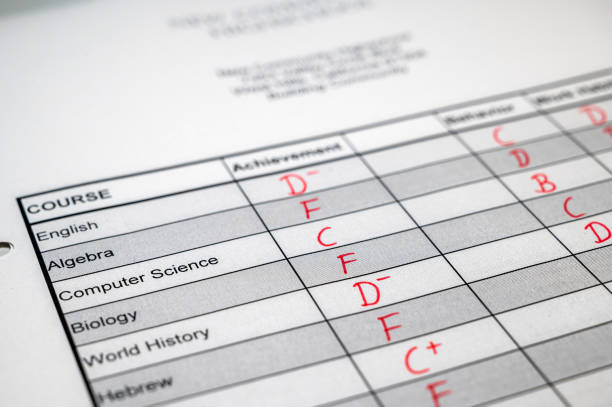“Even if a child studies hard, their grades may not improve.” This is a common concern among many parents and high school students. You might think, “If I study but my grades don’t improve, I must be sick.” However, possible reasons for this situation could include a lack of foundational knowledge or attention deficits.
That said, some individuals may indeed have learning disabilities or attention deficit hyperactivity disorder (ADHD). So, why might your grades not improve despite your efforts? There could be three main reasons:
1. Lack of Foundation
If your foundational knowledge is weak, it will be challenging to achieve good grades. You may find it difficult to solve application problems or tackle complex tasks. A solid understanding of basic concepts, especially in subjects like math and science, is crucial. Without a strong foundation, it becomes hard to maintain good grades. Therefore, it’s important to repeatedly review foundational knowledge and deepen your understanding. Regularly re-reading textbooks and solving basic problems, as well as taking practice tests to assess your comprehension, are good strategies.
2. Attention Deficits
Another possible reason is that you may struggle to concentrate. When your attention is scattered, your learning efficiency decreases, making it difficult to achieve results proportional to the time you spend studying. Factors contributing to this situation may include issues with your learning environment, lifestyle habits, or personal traits. You might also consider using attention training techniques or apps to help improve your focus.
3. Feeling Stressed
Stress can lead to poor performance. Excessive pressure can increase mental strain, reducing both attention and motivation. This stress can be particularly intense before exams or when completing important tasks. Therefore, it’s essential to combine relaxation techniques and maintain inner calm. Breathing exercises, meditation, and light physical activity can be very effective. Finding someone to talk to when you feel stressed can also help alleviate pressure.
If Academic Performance Does Not Improve, Consider the Possibility of a Disorder
Learning Disabilities (LD) – Learning disabilities refer to situations where a person faces significant difficulties in certain learning areas despite having normal intelligence. There are three main types of learning disabilities: dyslexia (reading difficulties), dysgraphia (writing difficulties), and dyscalculia (math difficulties). These disabilities are believed to be caused by some dysfunction in the central nervous system. Individuals with learning disabilities may appear normal at first glance, making it hard for others to understand their struggles. However, with early diagnosis and expert support, these challenges can be overcome.
Attention Deficit Hyperactivity Disorder (ADHD) – ADHD is a developmental disorder characterized by inattention, impulsivity, and hyperactivity. This can lead to difficulties in focusing on studies, restlessness in class, and forgetting assignments. It is estimated that about 3-7% of children aged 6 to 15 have ADHD. Students with ADHD are easily distracted and find it hard to concentrate on completing tasks, which reduces their learning efficiency. However, symptoms can be managed through medication, behavioral therapy, and environmental adjustments.
Autism Spectrum Disorder (ASD) – ASD is a developmental disorder characterized by significant difficulties in social communication and behavior. Symptoms may include delayed speech, repetitive behaviors, and difficulty engaging in conversations. Individuals with ASD often have intense interests and attachments to specific activities, making it challenging for them to think and act flexibly. This can hinder their ability to adapt to curriculum content and learning methods.






